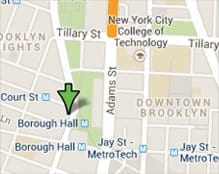When must police read you your Miranda rights?
Miranda rights form an important protection for suspects of all kinds in the American justice system. The law requires police to read a suspect his or her Miranda rights when an interaction crosses two important thresholds, but an officer may still collect statements that may later incriminate a person who does not realize his or her statements already qualify as evidence.
Courts generally do not allow prosecution to present evidence an officer illegally coerces out of a suspect, but if a suspect does not understand his or her rights, courts may not realize the evidence is unfair.
If you believe that police unfairly gathered evidence against you or failed to give you a Miranda warning at the proper time, you may have legal grounds to toss the charges. You can speak with an experienced defense attorney to examine your interaction with an officer in detail and identify any further abuses of your rights and freedoms.
Requirements for issuing Miranda warnings
Police do not generally have to issue a Miranda warning to a suspect until the suspect is:
- In police custody
- Under police Interrogation
Until an interaction meets these standards, the law does not obligate police to read you your Miranda rights. They may, however, gather anything you say as evidence against you, without informing you they are doing so.
Police custody and police interrogation
In general, a police stop does not qualify as custody until police specifically take you into custody. If you are not sure whether you are in custody, you may ask if you are free to go.
Similarly, police may ask for your identification and other limited questions that do not pertain to criminal activity without triggering interrogation. If an officer begins asking questions that could indicate criminal behavior, this counts as an interrogation, but may still not require a Miranda warning if you are not yet in custody.
Protect your rights today
If you recently received unfair or potentially unfair charges, you deserve to build a strong legal defense and protect yourself. You can consult with an experienced attorney to ensure that you understand your rights and how to protect them.
Police often use technically legal methods to skirt these laws, such as interrogating a suspect before placing him or her in custody. Remain alert of any information you give an officer during an interaction, and be sure to mount a legal defense as soon as you can if you do receive charges.
Office Location
Neil S. Ruskin
188 Montague Street Suite 900
Brooklyn, NY 11201
Local: (718) 237-1547
Fax: 718-875-4011












